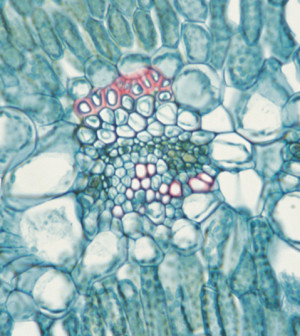- Recognizing the Signs of Hypothyroidism
- 10 Strategies to Overcome Insomnia
- Could Artificial Sweeteners Be Aging the Brain Faster?
- Techniques for Soothing Your Nervous System
- Does the Water in Your House Smell Funny? Here’s Why
- Can a Daily Dose of Apple Cider Vinegar Actually Aid Weight Loss?
- 6 Health Beverages That Can Actually Spike Your Blood Sugar
- Treatment Options for Social Anxiety Disorder
- Understanding the Connection Between Anxiety and Depression
- How Daily Prunes Can Influence Cholesterol and Inflammation
Body’s Immune System Destroys Would-Be Cancer Cells Daily: Study


Each day, your immune system spots and destroys cells that could easily go on to become cancerous, a new study reveals.
In this study, the cells up for destruction were rogue cells from the immune system itself, called immune B cells. It’s common for some of these immune cells to undergo spontaneous changes that could lead to cancer, but the immune system quickly eliminates them, say researchers reporting the finding Feb. 2 in Nature Medicine.
If the mutant immune B cells weren’t swiftly disposed of, they could develop into blood cancers called non-Hodgkin lymphomas (B-cell lymphomas), according to researchers at the Walter and Eliza Hall Institute in Australia.
The findings account for the “surprising rarity” of non-Hodgkin lymphomas despite how often these spontaneous changes occur in immune cells, the team said.
“Each and every one of us has spontaneous mutations in our immune B cells that occur as a result of their normal function. It is then somewhat of a paradox that B-cell lymphoma is not more common in the population,” lead researcher Dr. Axel Kallies said in an institute news release.
However, “immune surveillance by T cells enables early detection and elimination of these cancerous and pre-cancerous cells,” he said. This discovery “provides an answer to this puzzle, and proves that immune surveillance is essential to preventing the development of this blood cancer.”
The investigators made their discovery while studying the development of non-Hodgkin lymphomas.
“In the majority of patients, the first sign that something is wrong is finding an established tumor, which in many cases is difficult to treat,” David Tarlinton, an associate professor at the institute, said in the news release.
“Now that we know B-cell lymphoma is suppressed by the immune system, we could use this information to develop a diagnostic test that identifies people in early stages of this disease, before tumors develop and they progress to cancer,” he said.
More information
The American Cancer Society has more about non-Hodgkin lymphoma.
Source: HealthDay
Copyright © 2026 HealthDay. All rights reserved.










